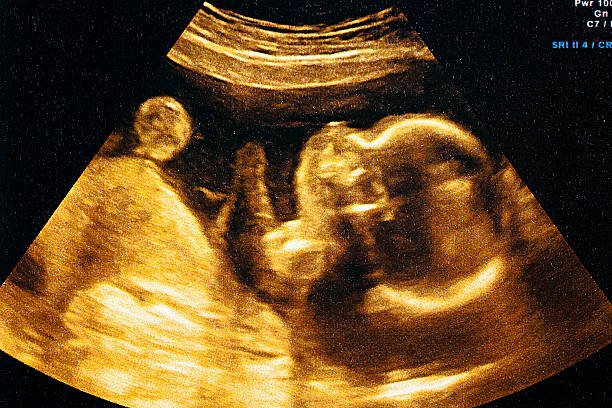The realm of medical science has seen unprecedented advances throughout history, bringing both hope and healing to countless individuals. Among these notable achievements is a procedure that many may find truly mind-boggling—fetal surgery. A question that often arises is, “What is fetal surgery?” Fetal surgery is a highly specialized procedure performed on an unborn baby while still in the uterus, to correct congenital abnormalities. This pioneering surgical feat is administered under the expertise of skilled medical professionals and relies heavily on unparalleled precise technology.
In recent times, newer applications of this extraordinary medical procedure have garnered significant attention in popular culture. A clear illustration of this is Kourtney Kardashian’s embrace of fetal surgery. This reality star’s decision to share her experience publicly sparked widespread interest in this field, amplifying the discourse around its possibilities, benefits, and risks.
Of course, the discussion surrounding fetal surgery isn’t confined to celebrity buzz; it’s a vital conversation for many individuals and families confronted with serious fetal diagnosis. Consequently, there’s a growing need for comprehensive material that helps shed light on this specialized medical intervention, providing clarity for those seeking to understand or consider this life-altering choice.
The Benefits of Fetal Surgery
Contents

One cannot overstate the profound medical breakthrough that fetal surgery represents. Intervention at this early stage of life can prevent debilitating conditions that might otherwise dramatically impact a child’s quality of life. Conditions such as spina bifida, lung abnormalities, and certain heart defects can be rectified through this preemptive procedure, potentially reducing (and in some cases, eliminating) the need for future surgeries and long-term disabilities in affected children.
Interestingly, the popular discussion revolving around Kourtney Kardashian’s fetal surgery also underlined another advantage of this procedure – the possibility of bolstering bonding between parents and their unborn child. By providing an opportunity for early intervention and resolution of severe medical concerns, fetal surgery can offer parents reassurance and a renewed sense of connectedness to their unborn baby.
However, like any other medical procedure, fetal surgery comes with its own set of considerations. The benefits must be weighed meticulously against potential risks, rendered easier with the consultation of a trusted and experienced medical health professional.
The Risks Associated with Fetal Surgery

As we embark on the path to understanding what fetal surgery entails, it is vital to remember that this innovative procedure is not without potential risks. The advanced nature of this surgery combines both maternal and fetal factors, invariably bringing both elements into consideration when evaluating its associated risks.
An operative intervention in the delicate environment of a womb is an intricate task, possibly posing challenges to both mother and baby. There can be an increased risk of premature birth, uterine dehiscence (separation of the uterine scar), and subsequent pregnancies may be impacted due to the higher risk of the uterus rupturing in labor.
Further, the unborn child, despite being a recipient of potentially transformative benefits, also faces risks. They could potentially experience a reaction to anesthesia, or developers complications linked to the invasive nature of the procedure, such as infection or bleeding.
The outlined risks are not to evoke fear but to promote an understanding that advances in medical science, such as fetal surgery, do not promise uncomplicated success. It is critical for expecting parents to discuss these factors with their healthcare providers to make the best-informed decision regarding their individual circumstances.
Understanding Urgent Fetal Surgery

In some instances, the necessity for fetal surgery takes on an urgent undertone. Urgent fetal surgery transpires when fetal health can be considerably compromised, or life-threatening conditions can emerge without immediate intervention. This remarkable operation can rectify severe problems even before birth, underlining the phrase ‘prevention is better than cure.’
Common cases requiring urgent fetal surgeries include those suffering from lower urinary tract obstruction, twin-to-twin transfusion syndrome, or severe congenital diaphragmatic hernia, amongst others. The compelling advantage is the potentially life-saving impact on a baby facing dire circumstances.
However, the urgency does not negate the risks; it merely underscores the critical cost vs benefit analysis that must be made. Cases of urgent fetal surgery mandate the need for healthcare providers, parents, and families to weigh the benefits against the potential risks carefully. Providing comprehensive information and compassionate counsel can make this process less overwhelming for those involved.
Explore more trustworthy hospital for fetal surgery worldwide.
Case Study: Kourtney Kardashian Fetal Surgery
Celebrity stories often provide visibility and stimulate dialogue on different issues in society. The narrative around Kourtney Kardashian’s fetal surgery serves as one such poignant real-life example. Kardashian’s choice to reveal the intricate details of her journey brought attention to this pioneering medical procedure, providing many people with an understanding, albeit through a celebrity lens.
The public revelation also served to humanize the process, showing that despite the science and complexity behind such a procedure, at the center of it remains a mother-to-be hoping for the best possible outcome for her child. Kardashian’s example demonstrates the thorough process involved in determining if fetal surgery is the right choice – a consultative process involving medical practitioners, psychiatrists, and family members.
While Kourtney Kardashian’s story might not reflect everyone’s experience, it undeniably adds a valuable dimension to the discourse on fetal surgery. Her experience underscores the importance of having thorough, informed discussions with health professionals, and highlights both the potential benefits and risks of undergoing such a procedure.

